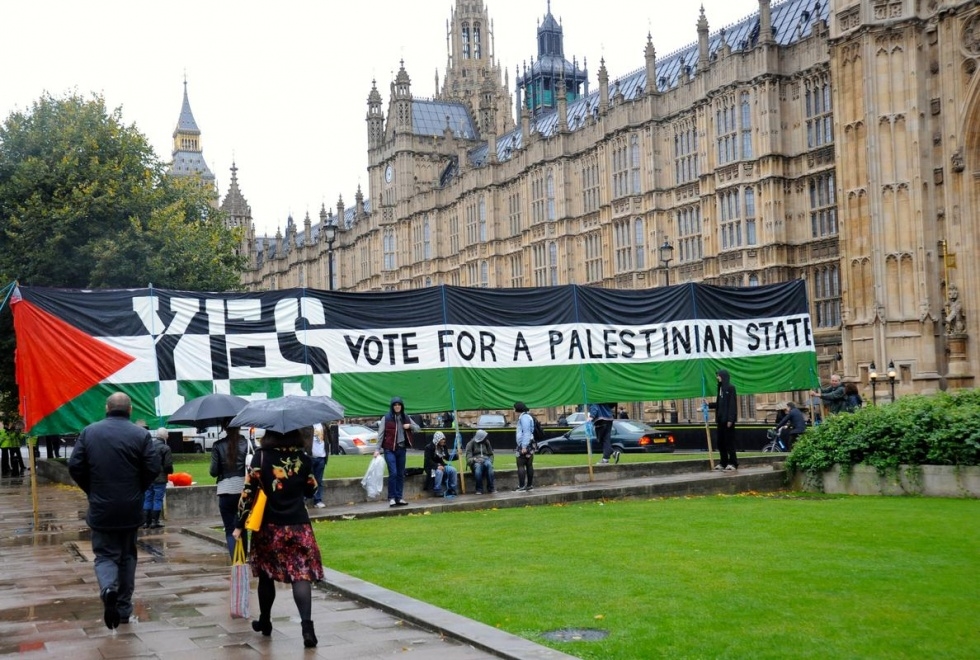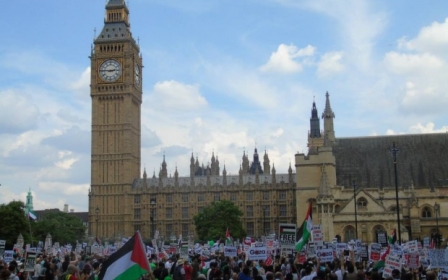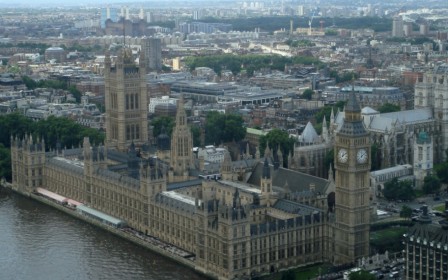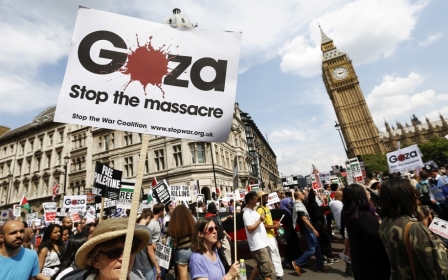MEE Media Roundup: UK parliament vote on Palestine

Abdel Bari Atwan, editor-in-chief of Arab news website Rai al-Youm, wrote in an editorial:
We remind those who are cheering the recognition of the British Parliament of a Palestinian state that the UK is primarily responsible for the catastrophe of Palestine. The Balfour Declaration, which was announced one hundred years ago - I repeat a hundred years ago - gave the Palestinians the right to establish their homeland and their state on an equal footing with the Jews. The UN partition resolution has also affirmed this right, to no effect. But what happened after that? The support for Israeli aggression against the Palestinian people continued, in more brutal ways. Palestinians and Arabs were distracted with small measures, such as having a state observer member, or a two-state solution, in return of laying down their arms and accept all the Israeli conditions.
Thank you Sweden and the British Parliament, but we are tired of those 'doses of sedation' and circus acts. We do not want your recognition, which does not alter anything other than reveal that there are those who believe we are still stupid, naïve and can be fooled easily.
Oliver Wright wrote in an article in the British daily the Independent:
Support for the motion, while symbolic, marks a significant change in the political landscape, following the failure of successive peace negotiations and the bitter conflict in Gaza over the summer.
Significantly, Labour whipped its MPs to vote in favour of the resolution, raising the prospect that the party would defy Israel’s wishes and recognise Palestine as a state should it come to power at the next election.
But even previously staunch supporters of Israel within the Conservative Party chose not to oppose the motion which was brought by the backbench Labour MP Grahame Morris.
Anshel Pfeffer wrote in Israel's Haaretz:
Despite the fact that it does not oblige the British government in any way or have any diplomatic impact, the fact that so many MPs felt compelled to participate and vote is where the true significance of the debate lies. The tone of many of the speeches of MPs who have long been supporters of Israel must serve as a red warning-sign for Israel.
Stephen Castle and Jodi Rudoren wrote in an article in the New York Times:
The vote was a symbolic but potent indication of how public opinion has shifted since the breakdown of American-sponsored peace negotiations and the conflict in Gaza this summer.
Though the outcome of the 274-to-12 parliamentary vote was not binding on the British government, the debate was the latest evidence of how support for Israeli policies, even among staunch allies of Israel, is giving way to more calibrated positions and in some cases frustrated expressions of opposition to Prime Minister Benjamin Netanyahu’s stance toward the Palestinians.
Vivian Winemann wrote in a blog in the Huffington Post:
It will, for instance, facilitate the bringing of prosecutions against Israeli politicians who travel abroad … and it will promote the campaign of boycotts and delegitimisation of the state of Israel, a goal opposed by all mainstream parties in [the UK].
Most seriously of all, it risks extending legitimacy to one part of the Palestinian administration – Hamas.
Middle East Eye propose une couverture et une analyse indépendantes et incomparables du Moyen-Orient, de l’Afrique du Nord et d’autres régions du monde. Pour en savoir plus sur la reprise de ce contenu et les frais qui s’appliquent, veuillez remplir ce formulaire [en anglais]. Pour en savoir plus sur MEE, cliquez ici [en anglais].




